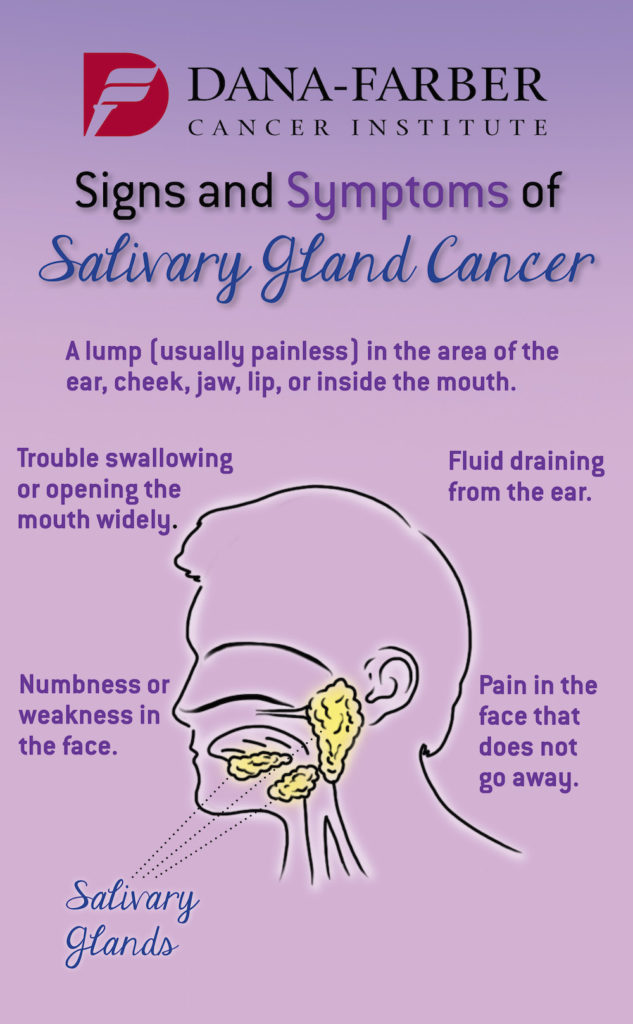Salivary gland cancer, a type of head and neck cancer, is a rare disease in which cancer cells form in the tissues of the salivary glands. It may not cause any symptoms, and it may be found during a regular dental check-up or physical exam.
Signs and symptoms may be caused by salivary gland cancer — but they may also be caused by other conditions. You should check with your doctor if you experience any of the following:

- A lump (usually painless) in the area of the ear, cheek, jaw, lip, or inside the mouth
- Trouble swallowing or opening the mouth widely
- Fluid draining from the ear
- Numbness or weakness in the face
- Pain in the face that does not go away
More than half of all salivary gland tumors are benign and do not spread to other tissues. Although the cause of most salivary gland cancers is not known, risk factors include the following:
- Older age
- Treatment with radiation therapy to the head and neck
- Being exposed to certain substances at work
The salivary glands make saliva and release it into the mouth. Saliva has enzymes that help digest food and antibodies that help protect against infections of the mouth and throat. There are three pairs of major salivary glands:
- Parotid glands: These are the largest salivary glands and are found in front of and just below each ear. Most major salivary gland tumors begin in this gland.
- Sublingual glands: These glands are found under the tongue in the floor of the mouth.
- Submandibular glands: These glands are found below the jawbone.
Learn more about salivary gland cancer from the Head and Neck Treatment Center at Dana-Farber.

My husband passed away last December from salivary gland cancer. The very first signs were twitching in his right eye, and tingling in his lip. Then the right side of his face bagan to droop and it was diagnosed as Bells Palsy. After months of no improvement, and regular visits to his PCP, a swollen neck gland appeared, and his face was getting worse, not better. We went to a neurologist and a needle biopsy THAT DAY, discovered he had parotid salivary gland cancer! The sad lesson we learned is to get other opinions RIGHT AWAY! He died within a year of the cancer diagnosis because it had gmetastasized throughout his body. Dr. Nicole Chau and the staff at Dana Farber tried many treatments to save him, and I am forever grateful for them….